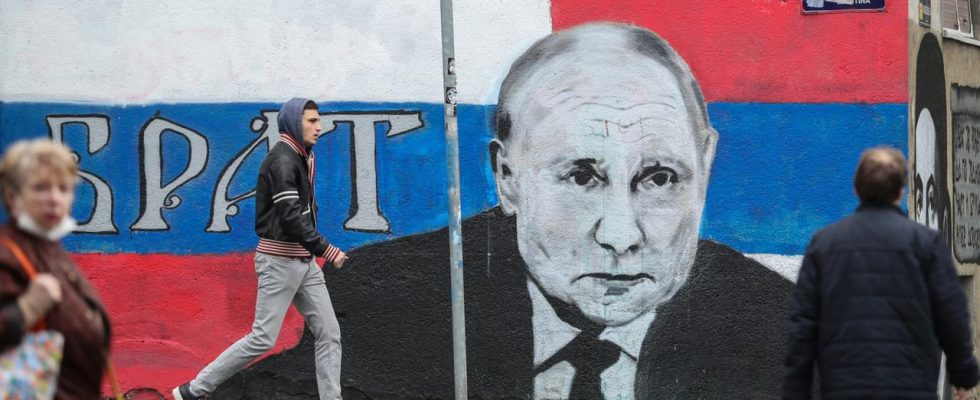Serbia expels Russian opposition members to Russia. And this is happening more and more often, because cooperation with Moscow is close. Even an incorrect signature can be disastrous.
Elena Koposova currently has no choice but to update her online inbox over and over again all day long. At the beginning of February, the Serbian Interior Ministry announced that she was a “threat to national security” and had to leave the country within the next 30 days.
Since then, she has been hoping for news that it was all a misunderstanding. The Russian woman, who moved to Serbia around five years ago, is actually an inconspicuous woman: 54 years old, an interpreter, two children.
And actually she was never really politically active, she says. “Just this one time two years ago I signed this petition on Facebook against the Russian war of aggression, nothing else,” she says. But now her residence permit has not been renewed. The Serbian Interior Ministry did not give reasons why it threatened national security.
Not an isolated case
Koposova definitely doesn’t want to go back to Russia. Because as an expelled person who has spoken out critically against the war, she fears that she will be imprisoned if she returns. Why the expulsion? Koposova says: “The Kremlin is definitely behind this. They’re putting pressure on Serbia.”
Elena Koposova is not the first Russian citizen to be persecuted in Serbia. More and more people are being rejected for residence permits for the same reasons. And the pressure for Russian exiles in Serbia is increasing.
It’s about cases like Koposowa’s, i.e. Russian citizens who live in Serbia and are supposedly attracting attention. According to the opposition organization Russian Democracy Society (RDS), 13 such cases are known so far. Although there can be even more, because those affected often do not want to go public with it.
Serbia is a reliable partner of Russia
It is precisely this intimidation and the silence of the opposition abroad that is the goal of the Russian state, says Peter Nikitin, founder of the RDS. “Because of intimidation, we as Russians in exile in Serbia are unable to form a movement to stand up against the Russian regime. Even though we actually have enough people.”
And Serbia, actually a candidate for EU membership, is once again proving to be a reliable partner for Russia. The country has still not joined the Western sanctions against Russia and still gets a good 90 percent of its gas from Russia.
Serbia under President Aleksandar Vucic is proving to be a reliable partner for Russia.
Spying on Kara-Mursa
Another case in which Russia and Serbia are said to have worked closely together against critical voices is that of Vladimir Kara-Mursa. The Russian journalist himself reported how the Serbian secret service intercepted him during a trip to Belgrade. He met Russian opposition figures in exile. The intercepted conversations then immediately ended up with Russian authorities. Vladimir Kara-Mursa is now in Russian prison for 25 years for criticizing the war of aggression.
“The basis for this cooperation is an agreement between Serbia and Russia to combat color revolutions from 2021,” says Aleksandra Tomanic, head of the European Fund for the Balkans. The then Serbian Interior Minister Aleksandar Vulin described social movements that were an instrument of the West to destabilize states such as Serbia and Russia as color revolutions.
Many Russian exiles in Serbia
“What is new, however, is that there are now a serious number of Russian exiles in Serbia who are ready to take to the streets and criticize the Russian regime there,” explains Tomanic. In order to prevent this, there are increasing cases like the one against Elena Koposowa.
Many confidants advised her to remain silent, says Koposova. But she doesn’t want that. Because Serbia has now become their home. Her family’s house is almost finished, the children speak Serbian and go to school. Last weekend the youngest was invited to his school friends for his birthday. Now Koposova has challenged the Interior Ministry’s decision in court to gain time.

